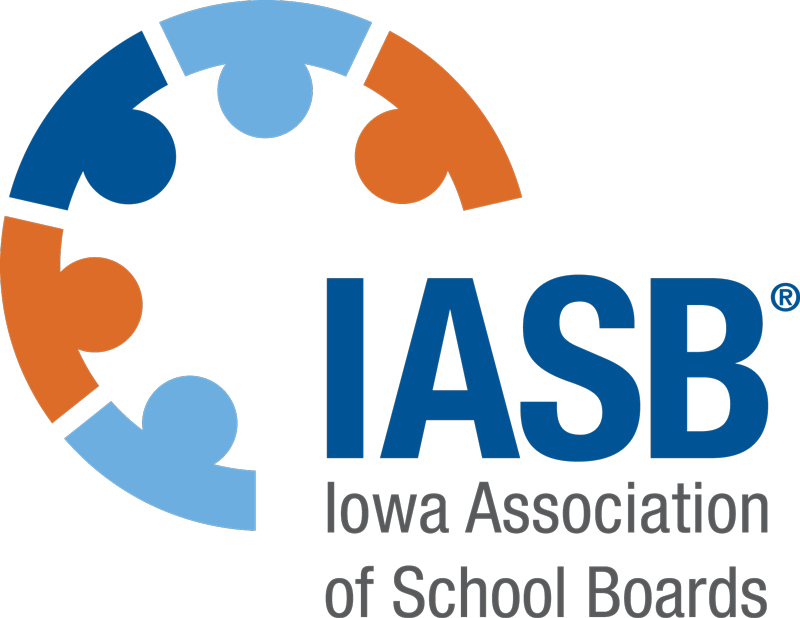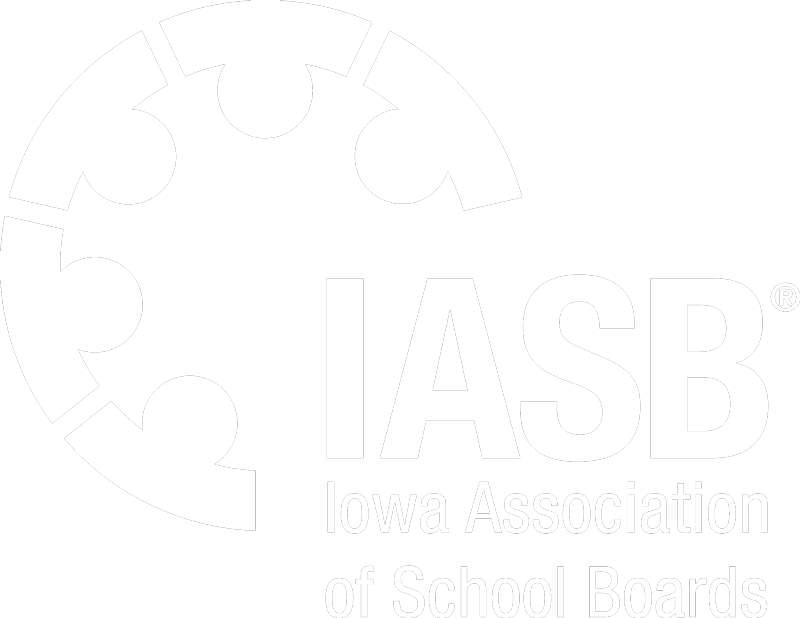The Standards for Effective School Boards
The Iowa School Board Standards are designed for use by local school boards as a common framework for excellence in school board governance. Based on best practice and research, the standards encourage boards to focus on student achievement as their primary responsibility. The framework includes six standards, along with competencies and key indicators that help clarify the work of high-performing school boards.In pursuit of world-class education that results in high achievement for all Iowa students, effective school boards:
1. VISIONARY TEAM
Operate as a visionary governance team in partnership with the superintendent.- Vision & Planning—Develops a shared vision and plans for student achievement that reflects common values and core beliefs of the school community.
- Operating Practices—Uses productive practices for its own operations and development.
- Decision-Making—Ensures board decisions are based on data and deliberation.
- Board/Superintendent Relations—Cultivates a strong relationship and partnership with the superintendent, based on clear expectations and accountability.
2. STUDENT LEARNING
Provide effective leadership for quality instruction and high, equitable student learning.- Clear Expectations—Sets and communicates high expectations for student learning with clear goals and a focus on strengthening instruction.
- Conditions for Success—Supports conditions for success through board actions and decisions.
- Accountability—Holds the system accountable to reach student learning goals.
- Collective Commitment—Builds the collective commitment of community and staff to achieve the student learning goals.
- Team Learning—Learns together as a whole team to inform decision-making around the student learning goals.
3. DISTRICT CULTURE
Foster a culture that enables excellence and innovation.- High Quality Staff—Empowers the superintendent in hiring and developing the best employees available to meet the district’s goals.
- Shared Leadership—Supports structures that develop instructional leadership and collaboration.
- Staff Learning—Supports research-based staff professional development aligned with district goals.
- Environment—Fosters a safe and secure environment for all students, staff, and visitors.
4. POLICY & LEGAL
Lead through sound policy, ensuring transparent, ethical, legal operations.- Policy Leadership—Develops sound, written policy to clarify the board's intent for district direction.
- Legal—Ensures that board and district actions are in compliance with state and federal laws, appropriately addressing legal issues when they arise.
- Ethics—Models ethical and legal behaviors which enable the board to stay focused on district goals.
- Transparency—Establishes policies and ensures processes that are open and accountable.
5. FISCAL RESPONSIBILITY
Sustain and enhance district resources through planning and fiduciary oversight.- Financial Health—Monitors and evaluates the financial health of the district, ensuring accountability and transparency in board decision making.
- Financial Forecasting—Ensures strong financial planning for the district.
- Budgeting—Ensures the district budget aligns with district goals and multi-year plans.
- Risk Oversight—Ensures sufficient risk management is in place to protect district resources.
- Facilities—Ensures school facilities enhance and enrich student and staff learning.
6. ADVOCACY
Advocate for public education and the needs of Iowa students.- Championing Local Governance & Public Education—Clearly articulates and advocates for the value of public education and the important role of local school governance.
- Legislative Advocacy—Develops and strengthens on-going relationships with policymakers around improving student achievement and the needs of public education.
- Community Engagement—Fosters engagement and collaboration with all stakeholders to ensure high and equitable student learning.
15.3.2025.8

